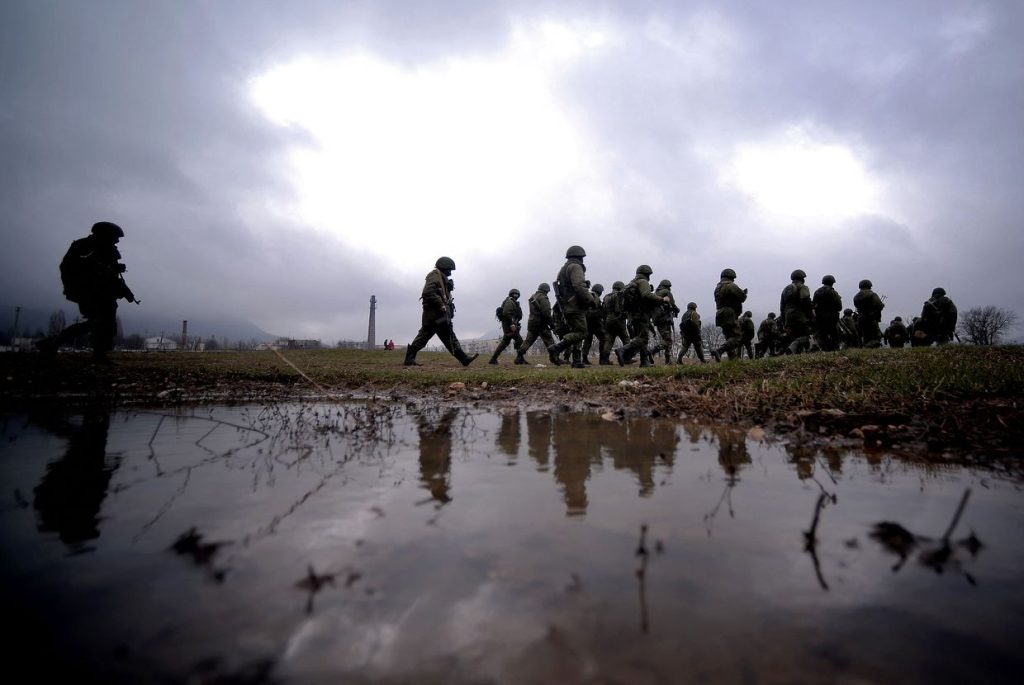Russia’s recent offensive in northern Kharkiv Oblast has seen the deployment of units from the Russian Defense Ministry’s Africa Corps, as well as convicts from the Storm-Z units, to attack the town of Vovchansk. The U.K. Defense Ministry reported that Russia launched this new offensive on May 10, focusing its efforts in the directions of Lyptsi and Vovchansk, settlements just a few kilometers south of the Russia-Ukraine border. Despite advancing 10 kilometers into the region, Russian forces were halted by Ukraine’s first line of defense, as reported by President Volodymyr Zelensky on May 16. It is believed that detachments from Russia’s Africa Corps were likely redeployed to the Ukrainian border in April 2024 in preparation for this offensive.
The Africa Corps, which emerged in 2013 and consists of over 2,000 soldiers and officers, along with experienced mercenaries, has been involved in conflicts in Syria, Libya, Burkina Faso, and Niger. Russia is reported to be recruiting foreigners from countries like Nepal, Somalia, India, and Cuba to fight in Ukraine, indicating a diverse composition of forces in this conflict. Ukrainian forces have managed to halt Russian troops in the Kharkiv sector and are conducting counterattacks to defend against the ongoing assault in Vovchansk. Two combat clashes were reported to be ongoing in Vovchansk as of May 24, indicating the intensity of the fighting in this region.
Russia’s two-pronged assault in Kharkiv Oblast is stretching Ukrainian defenses and exploiting their troop shortage, forcing Ukraine to make difficult decisions about where to commit reserves. The offensive, which began on May 10, is putting pressure on Ukraine as it faces the challenge of defending against Russian forces pushing into the region. The town of Vovchansk has become a battleground, with one group of Russian forces already engaged in street fighting. This ongoing conflict highlights the severity of the situation in Kharkiv Oblast and underscores the challenges faced by the Ukrainian military in defending against the Russian offensive.
The U.K. Defense Ministry’s report suggests that Russia may have reinforced its war on Ukraine with resources previously assigned to Africa, indicating a shift in focus for the Africa Corps. The presence of experienced mercenaries and foreign fighters in Russia’s forces further complicates the conflict in Ukraine, as different groups bring their own tactics and motivations to the battlefield. With Russian forces making significant advances into Kharkiv Oblast, Ukraine must continue to defend against the ongoing assault and make strategic decisions to protect its territory. The fighting in Vovchansk and other areas of Kharkiv Oblast underscores the high stakes of this conflict and the importance of international support for Ukraine in its fight against Russian aggression.
As the conflict in Kharkiv Oblast continues, Ukrainian forces face the challenge of defending against a well-equipped and determined Russian army. The involvement of the Africa Corps and convicts in the fighting in Vovchansk adds another layer of complexity to the conflict, as different groups with varying levels of experience and training are engaged in the battle. Despite facing significant pressure from Russian forces, Ukraine has shown resilience in halting their advance and conducting counterattacks to push back against the assault. The ongoing clashes in Vovchansk and the wider region highlight the intensity of the fighting and the importance of international assistance in supporting Ukraine’s efforts to defend its sovereignty and territorial integrity.


